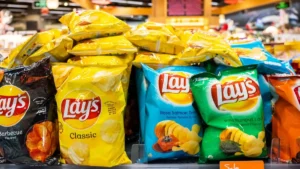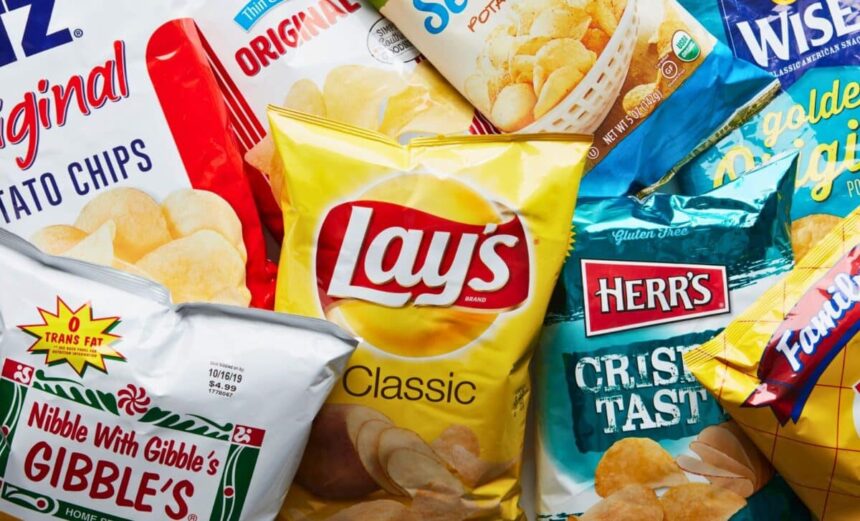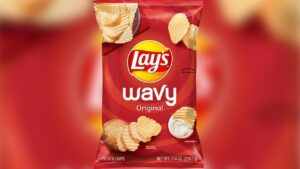A Crunchy Favorite Faces a Recall
For years, Lays potato chips have held a special place in snack aisles and household pantries. Their familiar crunch and wide variety of flavors make them a favorite across all ages. So when the Lays potato chips recall was announced, it left many people puzzled and concerned.
What could go wrong with something as simple as a potato chip? As it turns out, even trusted food products aren’t immune to unexpected errors. This article breaks down the story behind the recall, why it mattered, and how the company handled it—without confusing industry jargon.
When a Trusted Snack Becomes a Risk
It started quietly. A few complaints trickled in about unexpected allergic reactions after people ate certain Lays chips. These reactions were unusual, especially because the flavors in question didn’t list any allergens that would cause such symptoms. One person described feeling unwell after eating chips that were supposed to be safe for someone with a dairy allergy.
Frito-Lay, the company behind Lays, took the reports seriously. A fast internal investigation revealed that during a recent production run, a batch of chips might have been exposed to milk ingredients due to cross-contamination. This means equipment used for a milk-flavored chip wasn’t properly cleaned before making a different flavor.
Even though the risk was limited to a small number of packages, the company had to take action—and quickly.
The Official Announcement
Soon after confirming the issue, Frito-Lay made a public statement. They announced a recall for a specific group of Lays potato chips that may contain undeclared milk. Consumers with allergies were urged to check their bags carefully for batch numbers and expiration dates listed in the recall notice.
Retailers across the country received instructions to pull the affected products from shelves. The company also launched a customer service hotline and online resources to help people determine if their chips were affected and how to get a refund or replacement.
The recall was voluntary, which means the company chose to do it—not because they were forced by regulators, but because they felt it was the right thing to do.
Heading: What Led to the Lays Potato Chips Recall
To understand how this happened, it helps to look at how Lays chips are made. Large food factories often produce many different products on the same machines. After one flavor is made, the equipment is cleaned before switching to another. But in this case, something went wrong.
The cleaning process either wasn’t done properly, or there was a breakdown in following the cleaning steps. As a result, small traces of milk from a previous batch made their way into chips that should have been dairy-free. Since milk is one of the top allergens that must be clearly labeled, this was a serious issue—even if the risk was small.
Companies are required by law to label any allergens. Failing to do so can put lives at risk. That’s why even a tiny mistake like this can lead to a major recall.
Stories From Real People
While no major injuries were reported from this recall, it still affected many people emotionally. For families with food allergies, even hearing about a recall like this can be frightening.
Sarah, a mother of two in Texas, shared her experience. Her youngest child has a severe dairy allergy. “We always double-check food labels,” she said, “so I was shocked to hear that a trusted brand like Lays had a recall. It just reminds you that you can never be too careful.”
Stories like Sarah’s show that recalls have a real impact, even when they’re handled well. They also underline the importance of honesty and fast action from companies when things go wrong.
How the Company Rebuilt Trust
Following the recall, Frito-Lay took several steps to regain consumer confidence. First, they reviewed their safety protocols and re-trained staff at the affected facility. Second, they made public updates about what went wrong and how they planned to fix it.
The company’s quick response and openness helped ease some of the public concern. Many customers appreciated the transparency. Mistakes happen—but taking responsibility goes a long way.
Frito-Lay also worked closely with allergy awareness groups to spread accurate information about the recall and educate people on how to avoid unsafe products. These efforts made it clear that the company wasn’t just trying to protect its image—it was genuinely focused on keeping its customers safe.
Lessons for Consumers and the Industry
The Lays potato is just one example of how easily things can go wrong in large-scale food production. But it also shows how important it is to have strong systems in place for catching errors and responding quickly.
For consumers, it’s a reminder to stay informed. Always read food labels, and when you hear about a recall, don’t ignore it. It may seem like a rare event, but if you or someone you love has a food allergy, taking the time to double-check can be life-saving.
For companies, the message is clear: safety must come first. Not just in the lab or the boardroom, but every day on the factory floor.

Conclusion: A Cautionary Tale With a Positive Ending
No one expects to see their favorite chips on a recall list. But the story of the Lays potato chips recall is ultimately one of responsibility. A mistake happened, yes—but it was met with honesty, quick action, and real efforts to protect the public.
For snack lovers, Lays will likely remain a household name. But this recall serves as a valuable lesson for everyone—from manufacturers to shoppers—that safety, transparency, and trust go hand-in-hand in the world of food.






